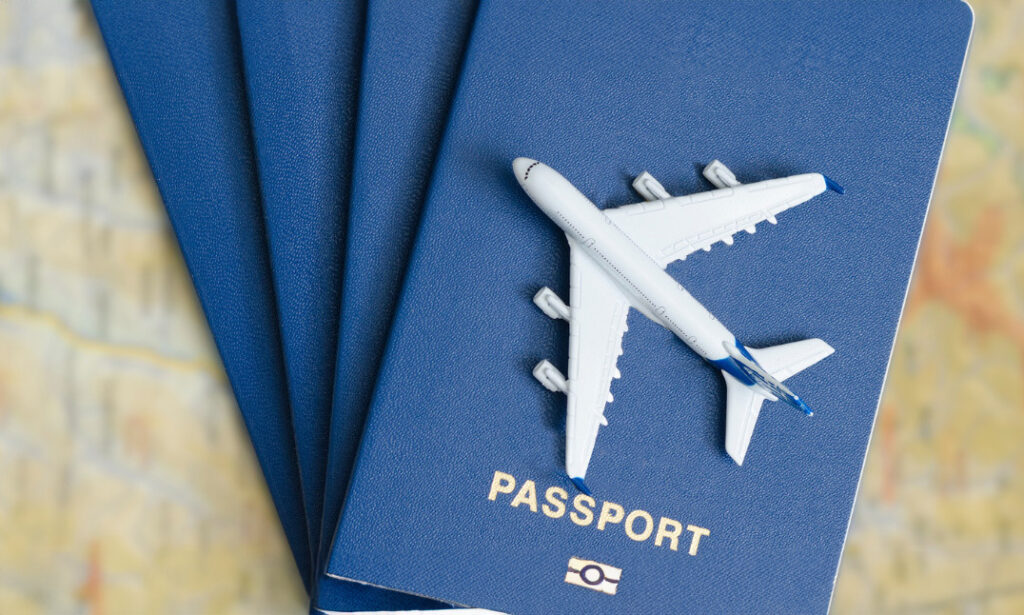Many people view travel as a transforming experience that opens doors to different cultures, expands their perspectives, and produces lifelong memories. However, the restrictions on their passport prevent a lot of individuals from realising their ambition of travelling abroad. This article explores the difficulties encountered by people whose passports are not in good condition and attempts to offer advice and pointers for travelling in spite of these obstacles.
Table of Contents
Story of every traveller who has a weak passport.
Imagine yourself sitting in the busy airport terminal, your heart pounding with the excitement of a fresh journey, only to have your plans derailed by the unpleasant truth that you won’t be allowed to enter the nation. For those of us with passports from nations with restricted international travel, this situation is all too familiar. Even in the face of obstacles, we are passionate about travel and want to share our knowledge and perspectives with those who are going through similar struggles.
Often, our forays into the realm of travel start out little. For individuals working as independent contractors, business owners, or professionals in nations where passport restrictions apply, travelling across national borders may seem like a far-off fantasy at first. However, we take the initial steps to turning that ambition into a reality because we are driven by a desire to travel and broaden our views. We have no idea what obstacles lie ahead of us.
Realising the Difficulties and Importance of Visas:
Visas are the entry point for international travel and a key factor in determining our permission to visit other nations. However, getting a visa may be a difficult and often depressing procedure for those whose passports are poor. Passengers with weaker passports have more rigorous criteria and are subject to more scrutiny than their counterparts with stronger passports, who can travel to many locations without a visa or with one upon arrival.
Common Obstacles in Visa Applications:
Gathering voluminous supporting documents is a difficult first step in the application process. The list of prerequisites could appear never-ending, ranging from thorough itineraries and evidence of financial stability to proof of connections to our own nation. The burden of evidence is doubled for citizens of nations where political unrest and economic instability can alert immigration officials.
Exams at Immigration Counters:
The difficulties don’t stop there, even if you have a valid visa. People who have weakened passports frequently experience more scrutiny, intrusive background checks, and difficult inquiries. In addition to adding time to the immigration process, this increased inspection may result in a rejection of entrance, which would normally be cause for celebration but instead leads to disappointment and annoyance.
There is still a strong desire to see the world in spite of these obstacles. We will go into further detail about how to get beyond these barriers and fulfil your desire to travel, even with a poor passport, in the parts that follow.

Overcoming Barriers: Acceptance and Reluctance Dos:
1. Presenting Financial Stability: It’s critical to project an image of financial stability and travel readiness while submitting visa applications or going through immigration. This may be accomplished by making sure you have enough money in your bank account to cover your vacation expenditures, carrying a sensible amount of cash, and dressing professionally. Recall that impressions may be greatly influenced by one’s look when dealing with immigration agents.
2. Retaining calm: It’s critical to retain composure at immigration counters. Even when confronted with potentially stressful situations, try not to show symptoms of anger or annoyance. Remain composed, respond to inquiries in a courteous manner, and assist immigration officers. Recall that maintaining composure and showing respect can greatly increase your chances of passing through immigration lawfully.
3. Printing Important papers: It’s simple to rely just on electronic versions of travel papers in the current digital era. However, it’s a good idea to print copies of all necessary papers in case your passport becomes weak. This covers your travel schedule, hotel bookings, visa, and evidence of a return ticket. Having printed copies on hand may be quite helpful, particularly in cases where immigration authorities prefer physical evidence or where online access may be restricted.
Do not do these:
Showing Aggression: Acting hostile or aggressively towards immigration officers is one of the most important don’ts while travelling with a weakened passport. No matter how unfair or annoying a situation may appear, acting out of control can have dire repercussions, such as being denied admission or deported. Always remember to be cooperative, kind, and patient.
Losing Patience: It’s normal to become agitated while dealing with drawn-out immigration processes or unforeseen delays. But giving in to frustration will only make things worse. Rather, be patient and understanding, as immigration officers are just carrying out their duties to maintain security and adherence to immigration regulations. In the end, it will be to your advantage to keep your composure.
Introspection and Request for Action
Thinking Back on the Journey: We acknowledge the tenacity and resolve that have carried us through the ordeal of overcoming travel restrictions while travelling with a weakened passport. Whether it was a success or a setback, every experience has changed our outlook and made us more determined to fulfil our travel goals.
Encouragement of Shared Experiences: We extend an invitation to readers to narrate their personal tales of travel successes and setbacks. By creating a supportive and united group, we can motivate those going through comparable struggles and gain strength from one another’s experiences.
Calling for Change: It’s time to push for modifications to international mobility regulations and assistance for those whose passports are poor. By promoting more inclusivity and accessibility and drawing attention to the differences in travel privileges, we may strive towards a more just and caring society.
Motivating Resilience: Above all, we urge readers to follow their aspirations and embrace the unwavering spirit of exploration in spite of whatever challenges they may encounter. Let’s show our support for one another as we stand together by our love of adventure and discovery.
Additional Advice on Passport Weakness
Give priority to nations that offer visa-free entry or visa-on-arrival.
Emphasis on Countries Without Visas: Choose nations that let passport holders of your nationality to enter with no need for a visa upon arrival. Make it a priority to go to these places first to avoid the headache of applying for a visa and waiting a long time for it to be processed.
Recognise the Difference: There is a difference between “visa on arrival” and “visa-free entry.” Whereas visa on arrival necessitates acquiring a visa upon arrival at the destination, visa-free entry permits you to enter and remain in a country for a certain amount of time without a visa.
Do Your Homework: Check with sites such as Travelscope to find out whether nations accept your passport for admission without a visa or with one upon arrival. But always double-check the details by doing more research or getting in touch with the relevant embassy.
Plan Ahead and Map Out Your Plan: If your plan includes both countries where a visa is not required and nations where one is, be sure you have obtained all required visas in advance. Applications for visas are typically subject to deadlines and are best submitted from your official place of residence or home country.
Recognise the Rules for Applying for a Visa: Although it’s usually difficult, certain embassies may accept applications for visas from overseas in special cases. To minimise issues, thoroughly research the visa policies and processes of each country well in advance.
Be Flexible: Arrange your travel itinerary wisely, taking into account the time it will take to obtain a visa and the order in which you want to visit the various nations. Once a year of travel is completed, return home to apply for the necessary visas for the next year’s itinerary.
Examine Extended Stays
Examine your options for study: To guarantee extended visits to other nations, consider studying overseas. For international students, several nations provide low or free education that can lead to permanent residency.
Examine Your Work Options: Look into positions that can provide long-term visas, such as au pair work, teaching English, freelancing, and internships. Furthermore, several nations provide digital nomads, freelancers, and artists with visas for self-employment.
Look into Working Holiday Visas: If you’re between the ages of 18 and 35, you might want to apply for one of these visas, which let you spend a year or two working or studying abroad. Look up the requirements for qualifying depending on your country.
Maintain Correct Documentation
Get your travel paperwork ready: Verify that you possess true, accurate, and comprehensive documentation, such as evidence of your lodging, future plans, financial stability, and links to your home nation.
Obtain documentation of onward travel, such as a reservation for a flight, in order to fulfil immigration criteria without having to make an expensive airline reservation. Websites such as OneWayFly provide reasonably priced airline booking options.
Provide Evidence of Funds: Use bank statements, investment portfolios, or letters of sponsorship to show that you have enough money or support for your trip. Examine the particular financial criteria that each country has for submitting a visa application.
Keep Close ties to your nation of origin
Give Proof of Connections: Stress the links that bind you to your nation of origin, whether they are job-related, property-related, familial ties, or future obligations. These elements provide immigration officials confidence that you intend to come back.
Be Honest and Open: Give a detailed explanation of your trip itinerary and motivations for visiting each nation. Sincerity is essential while applying for a visa, so avoid lying or hiding details.
All things considered
Remain Resilient: Persistently pursue your travel aspirations in spite of obstacles and possible rejections. Gain knowledge from every application encounter and keep refining your strategy.
Overdeliver: Take the initiative to prepare extra paperwork and take care of any possible issues before they arise. Having additional supporting documentation than necessary on hand might help your visa applications.
Remain Upbeat: Try not to allow issues with your visa to get you down. It is feasible to tour the world with a weak passport if you are determined enough and prepare ahead of time. Have faith in your capacity to conquer challenges and look forward to the journey ahead!
Conclusion
In conclusion, travelling with a weakened passport comes with several difficulties, but they may be solved with tenacity and fortitude. We can build a world where the freedom to explore knows no limitations by sharing our experiences, pushing for change, and inspiring resilience, all while upholding practical dos and don’ts. Let us press on, filled with bravery, optimism, and an unyielding will to see the world.





